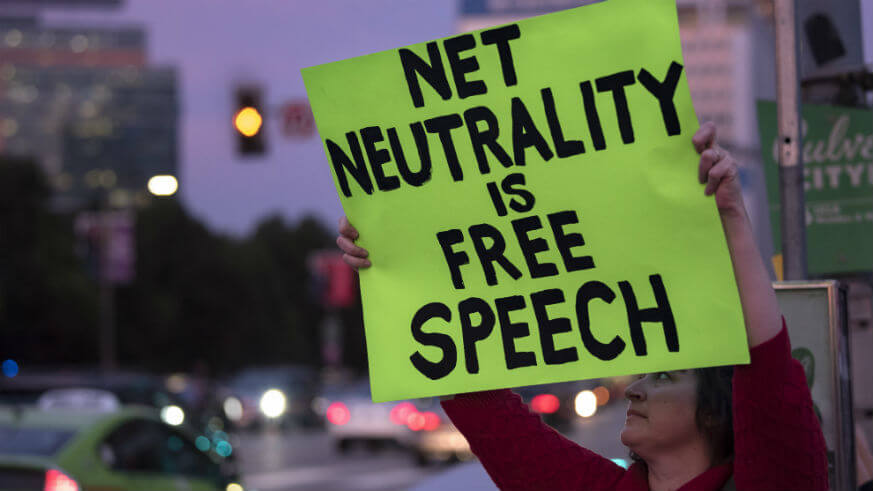Less than 24 hours after the Federal Communications Commission voted to repeal Obama-era net neutrality regulations, a protest of the move was planned in Philadelphia.
“Do you enjoy the internet? Are you furious that the FCC just repealed net neutrality rules? Then come on out and make some noise as we march around Philadelphia and make it known we want to save net neutrality!” organizers wrote on the Facebook event page, entitled “Protest to Save Net Neutrality.”
About 100 people had RSVPed to attend and roughly 1,000 said they were interested in the Facebook event, scheduled for Sunday, Dec. 17. A second protest is scheduled for Saturday, Jan. 13 at Thomas Paine Plaza.
A group of state attorneys general, including Pennsylvania AG Josh Shapiro, have vowed to sue the Trump administration to prevent the change from taking effect in their home states.
On Friday, Democratic U.S. Sen. Chuck Schumer said he would force a vote on net neutrality before Congress under the Congressional Review Act.
“There will be a vote to repeal the rule that the FCC passed. It’s in our power to do that,” Schumer said.
This week’s FCC order grants internet providers sweeping new powers to block, throttle or discriminate among internet content, but requires public disclosure of those practices. Internet providers have vowed not to change how consumers get online content. The FCC rules also seek to bar states from imposing their own net neutrality requirements.
The FCC has said the rules won’t take effect until the White House Office of Management and Budget approves the new transparency rules, which could take several months.
But Moody’s Investors Service said self-interest would prevent providers from implementing changes too quickly.
Providers “will tread lightly when it comes to engaging in paid prioritization and throttling, as there could be significant negative public reaction to these acts,” Moody’s said. “At least in the near term, the cost of negative publicity on their existing businesses far outweighs the benefit of additional revenue streams these companies can generate from paid prioritization agreements.”
Additional reporting by Reuters



























